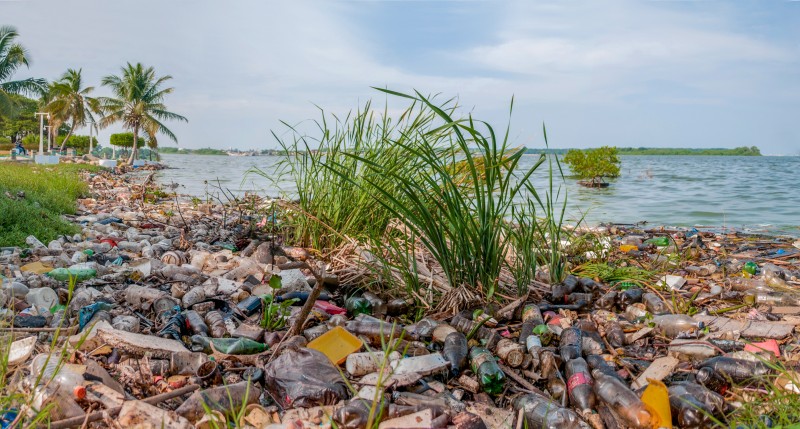Richard Turnbull: We must be stewards of the environment

(This is an adaptation of a speech given at the Institute of Economic Affairs – For more information about the event please click here)
Christianity, politics the poor and the planet – what should the Christian attitude and response to these issues be?
I want to reflect on two things; the Christian responsibility for the environment and the role of the market in proving a mechanism for an appropriate response.
First, then, an appropriate Christian framework for dealing with environmental issues. It is an area where there is frequent muddled thinking. The Papal encyclical Laudato Si exemplifies both the basic principles and the muddle.
The doctrine of creation is paramount. It is the doctrine of creation which endows the human person with dignity. However, this same doctrine, drawn from Genesis 1 and 2, also establishes the principle of wealth creation. Man was placed in the Garden of Eden, we are told, to both work it (with the raw materials provided) – the principle of wealth creation, and to care for it – the principle of stewardship. To understand a Christian response to the environment you need both of those aspects, not just one.
Now, at the risk of getting too theological; since we live between the fall (hence not a perfect world) and the ultimate end (when all will be restored) there are trade-offs; we are to live, to work, to produce, to educate, to enjoy, to worship and we are to care, steward, oversee and act responsibly. We are not called to asceticism; Lydia is an example of a wealthy Christian businesswoman in the Bible; we are called to innovation, creativity and enterprise; and to steward and care for the world created by God.
The muddled thinking comes about because the language of ‘common good’ sometimes subverts the idea of ‘mutual flourishing.’ The latter bakes the cake; the former reflects upon its distribution. This also leads to the unhelpful presumption that government or global authorities provide the solution to every problem and there is frequently a misunderstanding of the market, which fails to give proper perspective to the role of business and enterprise
Second, then, how can the market help in the environmental debates? Four points:
- – We are told, and the Papal Encyclical is at pains to emphasise, that the poor face the biggest consequences of climate change – due to their dependency on agriculture, and being located in low-lying areas etc. The number of the very poor (less than $1 a day) has halved in the last 15 years according to the UN. The market is an essential element of the solution to poverty and as a consequence is an essential element of the response to and management of climate change. The market, poverty reduction and climate change are intricately linked.
- – The market will be most responsive to sustainable companies, so business must both innovate and respond to the needs of the market in terms of shared value and sustainability. So one of the world’s largest bakery goods firms (the rather unhelpfully named ‘Bimbo Group’) with a capitalisation of some $12bn and 129,000 employees places sustainable development as one of its four key objectives through the use of renewable energy, electric delivery vehicles, waste management and degradable packaging. All of this is compatible with profitability. Better people, better companies, better countries mean better profits and a better planet. The most holistic companies from the Quaker companies of the eighteenth century to today’s sustainable companies are often also the most profitable. The market knows and responds.
- – Carbon credits and carbon offsets are effective ways of the market responding to environmental need. Perhaps the market needs developing but the Pope was wrong to criticise this aspect of the market mechanism. By setting emissions targets which are tradeable it is possible to achieve a long-term reduction by allowing the market to do what it does best; price and allocate scarce resources for an outcome that benefits all. Similarly with set-offs; these allow the development of renewable sources of energy, changes in land use and indeed the preservation of wilderness areas all of which carry distinctive environmental gains.
- – Sustainable, ethical and environmental capital investment or impact funds are an effective way of ensuring capital is put to good and efficient use at a return for risk but achieving social good. The asset markets have a role in ensuring capital is put to use efficiently where it is needed. Environment and sustainable objectives can ensure capital is used well. So the Kuzuko Game reserve in South Africa invested in by social impact funds has not only delivered economic and social development, employment and wages, but also conservation programmes and the rehabilitation of land giving a significant environmental impact.
The market is best at pricing and allocation. Certainly the market needs moral boundaries and moral people as participants and players. However, the market mechanism can be harnessed in support of the environment in ways that governments cannot achieve; governments invariably misallocate resources and hence excessive expectations of government are likely to harm rather than assist the environment.
Any Christian viewpoint that fails to give proper weight to wealth creation, to enterprise and to the market is, in my view, misrepresenting God.

Dr Richard Turnbull is the Director of the Centre for Enterprise, Markets & Ethics (CEME). For more information about Richard please click here.
